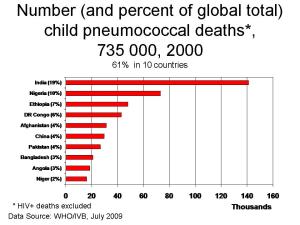It’s here, the much-anticipated second leader’s debate. What will happen? Will Clegg triumph again? Will Brown again posture towards the Lib-Dems or will he try to go it alone? Will Cameron finally bring up his Big Society policy, even though it has nothing to do with foreign affairs, the topic for the second debate?
Below is a brief synopsis of how I think it will go for each leader.
Nick Clegg
His star is shining bright, so there will be sky high expectations of him. Unfortunately, foreign affairs is probably the Lib-Dems worst subject. Clegg has flip-flopped on the Euro issue and now says taking on the Euro would be a mistake, but at the same time, it is there in black and white in the Lib-Dem manifesto that one day the UK should accept the Euro. Essentially, the Lib-Dems love Europe, especially Clegg. This isn’t necessarily going to go down well with some swing voters, but the question is, how many of these people are actually going to vote for the Lib-Dems anyway?
Clegg is also in an interesting position as expectations are high. Brown and especially Cameron are going to try to ground him. But all Clegg has to do is misquote Reagan again and again – “There they go again” in response to the two bigger parties’ attacks. He probably doesn’t need to answer a question other than make everyone feel sorry for the little guy. I feel this is the best option, because going on the attack and trying to be equal to Labour and the Tories on foreign policy is a mistake – because he’d lose.
David Cameron
If Clegg is under pressure, Cameron is under just as much if not more. He has to up his game significantly from the first debate, where he forgot to mention his key domestic policies. Problem is, foreign affairs isn’t the Tories strongest subject and they have been out of power for 13 years, so their international reputation may not be as strong as they’d like it to be.
Cameron will be hit on his ‘iron clad guarantee’ for a referendum on Europe. It obviously isn’t going to happen and there are a lot of conservatives, not party members, just conservatives, who don’t trust his Europe policies. Likewise, Brown and Clegg are both going to hammer him on the Conservative’s relationships within Europe, including his Polish partners.
His promise to keep an independent DFID and legislate a 0.7% aid budget will also come under fire from ultra-conservative voters. I know many aid groups are pleasantly surprised by this, but when you can’t secure your base, it’s not the best strategy to try to out flank your opposition from the left.
Cameron is also going to mention the Iran question, but his intervention during the green revolution was reported by some as a gaffe. The UK and the USA statements focused on a “we’re watching with interest”, because they knew public support of the protestors would enable the Iranian officials to claim the unrest was caused by UK and USA intervention. However, Cameron came out and decried the lack of support from Brown to the protestors and publically stated that the protestors had the support of the UK people. This was naive foreign policy.
Gordon Brown
Gordon Brown has relationships overseas, in fact believe it or not, he is very well-respected internationally, in 2009 he was voted world statesmen of the year and is respected overseas more than in the UK. This is his biggest trump card and needs to play it. This is hugely beneficial for issues such as the Tobin Tax, Iran, Afghanistan and the Middle East in general. Afghanistan funding will again be a weak spot due to issues such as the numbers of helicopters etc.
He also needs to be more forceful I feel. Although he performed above expectations in the last debate, I think the Iron Chancellor needs to be on the stage. Due to the lack of audience interaction, jokes don’t necessarily play well on TV due to the silence in the studio – it makes it sound like the joke has fallen flat. Brown did well confronting Cameron on the police issues in the first debate and I thought the “it’s answer time not question time”, was effective. He needs to do it again, especially on Europe.
Brown is less pro-EU that Clegg, he keeps Europe at an arm’s length, but with an open palm, not a clenched fist. This will make voters feel more comfortable.
But he still has the image problem and that will be his biggest weakness.
All-in-all, it will be a fascinating evening and I’m looking forward to seeing the polls the next day.
cross posted with Ruder Finn Dot Comms.



Video to mark World AIDS day.
3 DecThis is a video I saw a few months ago, but it is still incredibly moving. Its just really, really well done.
Tags: AIDS, HIV, International Development, World AIDS day